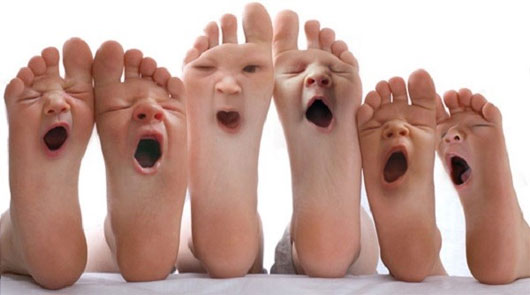General characteristics of people who are prone to yawning
This is the result of a new study by Dr. Elizabeth Cirulli of Duke University on the "transmission" of yawning.
A recent study has shown that those who are more sympathetic and understand others are more likely to "spread" yawning. Accordingly, children with autism who do not express sympathy will share less yawn.
Researcher Dr. Elizabeth Cirulli of Duke University and colleagues conducted a trial of 328 healthy volunteers and about 5 people with autism symptoms. They will participate in a demographic survey, a comprehensive questionnaire about empathy, enthusiasm .

After that, the participants watched a 3-minute video with a yawn and they were recorded yawning when watching the video. Experts found that some individuals are less sensitive, "spread" yawns than others, and the yawn is 15 times the most.
Research has shown which subjects are susceptible to yawning and who can be immune to them. Thereby, experts learn about psychological factors when participants test yawning, and learn about the mechanism of this spread.

During the study, psychologists also discovered something quite strange, autistic objects are often unaffected by yawning. They seem to be immune to yawning patterns, whether they are affected by images, sounds or both things combined.
Another researcher said that the yawning mechanism was previously thought to be due to lack of oxygen, but it is not completely true. Seeing, hearing yawn has created a reflex, which makes us tend to imitate unconsciously.

People with empathy have made sense of sharing so it is easier to be affected. However, scientists are still trying to learn more to see if the genetic effects have contributed to this yawning "disease" .
The long-term goal of experts is to describe changes in "contagious yawning" as well as see how people work in general by determining the genetic basis of this trait.
The study was published in PLoS ONE magazine.
- Discover true love by yawning
- Li explained the phenomenon of yawning
- Interesting facts about yawning may not be known
- Dog yawns to the owner
- Solve the yawning chain effect in animals
- Time yawned reveals human intelligence
- Yawn makes people wiser?
- Too much yawning is caused by overheating of the brain
- Yawning is one of the biggest mysteries of humans
- Yawning is a sign of changing body state
- Dogs are infected with 'disease' yawning from people
- Too much yawn to sleep is not a simple thing
 Green tea cleans teeth better than mouthwash?
Green tea cleans teeth better than mouthwash? Death kiss: This is why you should not let anyone kiss your baby's lips
Death kiss: This is why you should not let anyone kiss your baby's lips What is salmonellosis?
What is salmonellosis? Caution should be exercised when using aloe vera through eating and drinking
Caution should be exercised when using aloe vera through eating and drinking